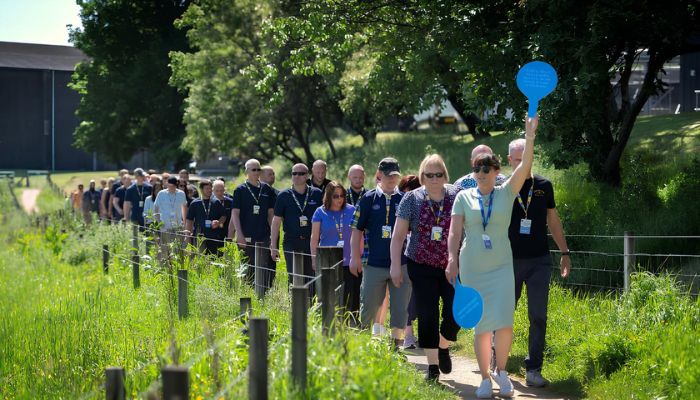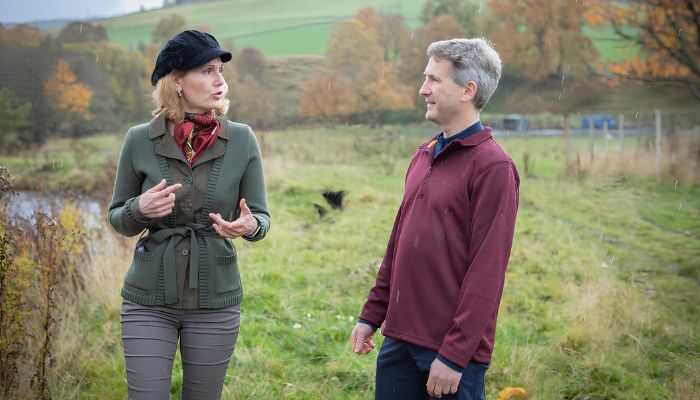Submission Deadline
28 February 2026
Judging
Date
24 & 25 March 2026
Winners Announcement
22 April 2026
28 February 2026
24 & 25 March 2026
22 April 2026

Pernod Ricard spearheads the path to sustainability, encompassing everything from sourcing and packaging to emission reduction, responsible consumption, and the minimization of bar straw usage, among numerous other initiatives. Join us as we delve into their pioneering journey toward sustainability.
All four pillars are integral to Pernod Ricard's commitment to sustainability and responsible business practices with each seeking to address material issues facing the Group and the world, such as climate change, human rights, and waste. Before selecting these areas and the eight corresponding commitments set out in our 2030 roadmap, we worked closely with several stakeholders, including employees, shareholders, NGOs, reporters, and suppliers to create a materiality matrix that allowed us to rank issues against the businesses’ objectives and sustainability priorities.
It's a thorough process that involves scoping, collecting data, calculating and estimating impact, reporting, and decision-making. It also requires stakeholder engagement to assess sustainability issues as well as setting measurable goals and conducting a cost-benefit analysis.
When it comes to prioritizing, we focus on where we have the most impact. At Pernod Ricard in the UK, the conversation nowadays is around CO2 emissions, and this has an impact on everything we do. Reducing carbon emissions is one of our key focus areas and is well integrated within our strategy. We continue to monitor our progress against this and communicate our efforts, as well as work to collaborate across and beyond the industry to find innovative solutions.
All the selected initiatives address pertinent environmental and social challenges that align with Pernod Ricard’s sustainability strategy, employee input, and stakeholder collaboration. Each year, the topic shifts, showcasing work accomplished throughout the year.
For instance, this year's focus is on wellbeing. To ensure long-term impact, these efforts extend beyond the event day through ongoing monitoring, partnerships, and integration within the broader sustainability framework.
Pernod Ricard fosters a culture that embraces a healthy mind and body. We want to make sure we are in a ‘Good Place’, to continue bringing ‘Good Times’. So, this year for Responsib’All Day, we are taking a moment to stop our daily routines, recharge, and connect to ourselves, our colleagues, and our communities.

(Image Source: Pernod Ricard) Pernod Ricard employees came together to carry out a sustainability initiative together
The conversation around sustainability has progressed rapidly in recent years, and getting the buy-in needed for initiatives is not the challenge it once was.
That being said, in any organisation – large or small - there will always be competing priorities and tension points where focus and energy are perceived to be equally required.
That is why it is critical when implementing major sustainability efforts that these initiatives genuinely reflect a long-term mindset shift towards sustainability as an investment in the future, and that every stakeholder involved is aligned with this from the very beginning to get their buy-in. It's critical that sustainability is considered from the very start of the project.
Successfully engaging stakeholders with a sustainability initiative involves identifying their interests, communicating transparently from the start, making sure they play a part in decision-making, and addressing their concerns.

Image Source: Pernod Ricard (From Left - Right, CBL Sandrine Ricard and Ronald)
To make that a reality, regular communications with key stakeholders is imperative – as you will always need an open dialogue, to ensure you are able to continually reiterate the initiative’s value, relevance, and long-term importance. Fostering a mindset change within the organization, that views sustainability as a value driver and investment in the future – as opposed to a cost center - is how we have been able to put S&R so central to our business strategy.
The challenge is no longer in the why we need to do what we need to do, but rather how we get it done. Some people are more reluctant than others to change so it’s necessary to provide evidence of the initiative’s benefits. For most, the reluctance comes down to resource constraints and competing interests, but the reality is it is much costlier not to take action. To overcome these, we have to seek partnerships for resources and facilitate dialogue to find common ground among stakeholders.
Most critically, you cannot view that business plan in isolation – it is essential to take a holistic approach to ensure the successful implementation of a sustainability initiative.
This means you have to consider the benefits, but also any consequences that the initiative will have for employees, customers, and partners. In fact, within the alcohol industry, it is especially important to outline how the entire production line will be affected. For example, when getting rid of packaging or changing a packaging type we need to consider the impact it will have on suppliers, so we tend to work with them to find the best solution.
[[relatedPurchasesItems-63]]
The best way to engage with suppliers is to have clear internal alignment, and an open dialogue, to offer them support, and to motivate through recognition of good work.
Pernod Ricard’s approach to sustainable packaging initiatives spans the entire lifecycle of our products, from inception to post-consumer considerations. This way, we fully embrace circular design principles as a driving force for change.
The Ecopack online tool was launched in 2021, and with an accompanying panel, it is used to ensure we comply with the Sustainable Packaging Guidelines launched in 2019. These mandatory guidelines set out a list of eco-design principles that we must follow to achieve our Sustainable Packaging targets as part of the Circular Making pillar in the ‘Good Times from a Good Place’ S&R Roadmap.
All packaging is to be recyclable, compostable, or reusable in line with the Sustainable Packaging Guidelines by 2025.
Our commitment also extends to manufacturing, as we work towards carbon-free glass production with our suppliers.
Secondary packaging has also been a focal point and we are actively reducing non-essential elements like foil caps and transitioning towards reusable and refillable options.
By 2021, 100% of promotional items made from single-use plastic were banned, four years ahead of the original target. In addition to this, all of Pernod Ricard’s packaging will be recyclable, compostable, our reusable by 2025 and by 2030 the Group will pilot five new circular ways of distributing wine & spirits and help increase recycling rates in its top 10 largest markets with low recycling levels.
Earlier this year, Absolut became the first global spirits brand to sell single-mould paper-based bottles commercially in the UK as part of a three-month trial, marking a significant milestone on its journey to create a 100 percent bio-based bottle. The initiative is part of a wider collaboration with Paboco (the Paper Bottle Company) and will help us inform the next steps on Absolut’s innovation journey.
Pernod Ricard, as a Group, has also recently invested in ecoSPIRITS to scale up an innovative circular distribution system for premium wine and spirits. In March 2022, we first partnered with ecoSPIRITS to distribute Absolute Vodka, Beefeater gin, and Havana Club rum in Hong Kong and Singapore through fully reusable 4.5-liter glass containers. This drastically reduced waste and carbon emissions associated with the production and transportation of bottles, as well as secondary packaging. Pernod Ricard is currently in the process of expanding this partnership to markets outside of Asia.

Image of Distillery (source: Pernod Ricard)
By successfully integrating heat recovery technologies, including Mechanical Vapour Recompression (MVR) and Thermo Vapour Recompression (TVR), total energy consumption has been reduced by almost half (48%) at Glentauchers distillery, as well as the site’s total carbon emissions by 53%.
While this marks a huge step forward in Chivas Brothers’ drive for net zero distillation by 2026, a sustainable future for Scotch will only be secured through collective action. That is the decision was made to make this ‘open source’ by sharing the expertise and learnings from the application of this technology with the industry so that other distillers can explore whether it has the potential to reduce their own carbon output.
Plans to roll out these integrations across all viable sites are underway. Once completed we expect these technologies to reduce Chivas Brothers’ overall energy consumption and carbon emissions in distillation by one-third, which is more than 30,000 tonnes of CO2 per annum, or the equivalent of 67,226 UK homes.
For Pernod Ricard in the UK, our core sustainability focus for 2023 and 2024 is the continued reduction of emissions across our operations. From reducing energy consumption in the distillation process through MVR technology to our ongoing sustainable packaging initiatives, we have made great strides in cutting emissions across different parts of the business.
In conversation with Malvika Patel, Editor and VP, Beverage Trade Network
Show your spirits where it matters. Get your products tasted by top bartenders, buyers and experts at the London Competitions — enter now.